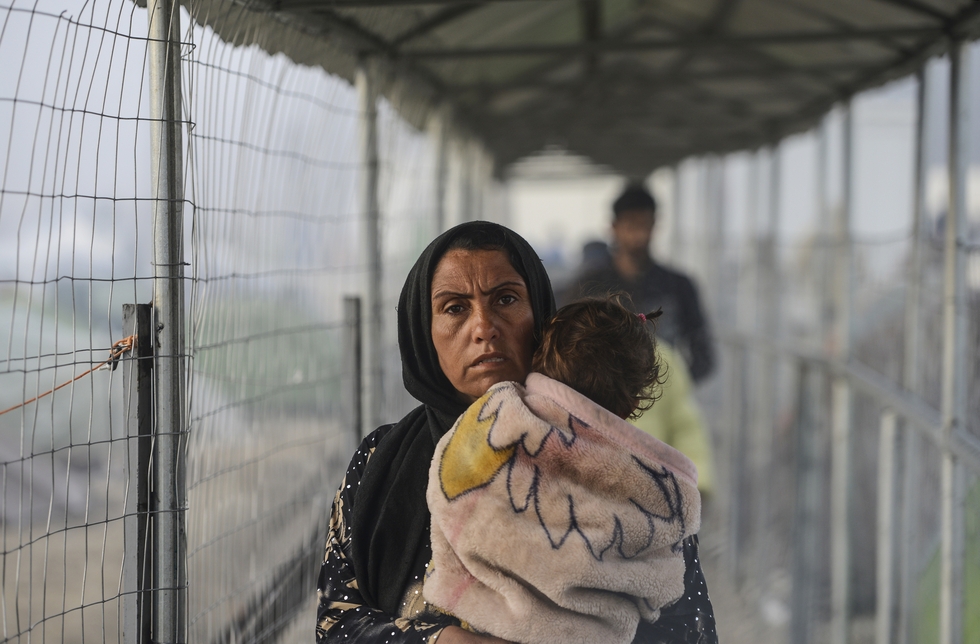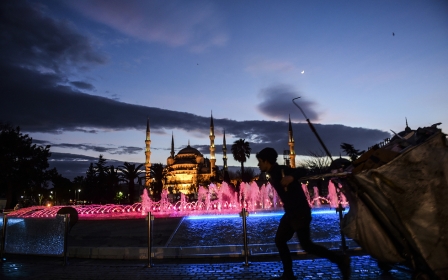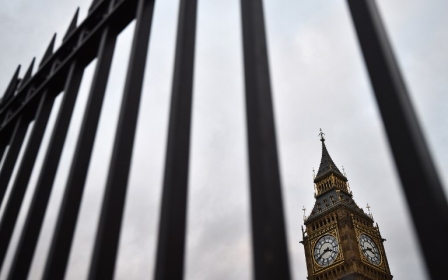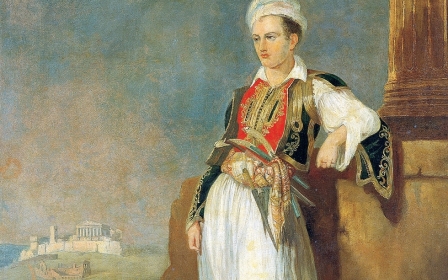The entangled relationship between Europe and Islam

In the aftermath of every single bombing or terrorist attacks in any European city, the debate erupts once again about Europe’s relationship with its Muslims as well as with its Muslim neighbourhood. It is not hard to observe that since the London’s terrorist attacks of July 2005 all the way through the attacks of Madrid and Paris and then eventually to Brussels, such debate almost reproduces itself with little change in the tone or in the vocabulary.
The debate involves the relationship of the Muslim minorities with Western European societies; the integration or non-integration of these communities; and their cooperation or non-cooperation with the security authorities in the continent’s various countries. In the past few months, another question was added to the questions raised in the debate about Islam, the Muslims and terrorism. That is the issue of the refugees and the flow of hundreds of thousands of Syrian, Iraqi and Kurdish Muslims specifically into the countries of Western Europe.
Yet the focus of the debate, and the axle around which most questions revolve in the aftermath of any such incident is always security. For example, have the Muslim minorities turned into a fifth column within European societies, and to what extent have the security agencies failed in obtaining the necessary information and in conveying it to the various international agencies sufficiently well in advance of the occurrence of such terrorist attacks?
The voices that speak for cultural and social diversity in post-Cold War Europe have receded to a large extent. The dialogue about Europe’s responsibility, and about Western policies in general, has almost completely vanished from the dialogue space. Europe’s soul-searching about the reasons behind this wave of terrorism, which has been going on since the turn of this century, is still superficial, shallow and disproportionate when it comes to the significance of what is going on.
In September 2001, the United States was subjected to several simultaneous and unprecedented bloody terrorist attacks for which al-Qaeda claimed responsibility. The American response was not proportional to the size of the attacks.
Instead of mobilising the security and justice mechanisms needed for confronting a challenge of this kind, the administration of president Bush Jnr, with the support of a tangible number of Western European states, waged an endless war on Afghanistan and Iraq and was about to start a war on Syria too. It even encouraged its Israeli allies to attack both Lebanon and the Gaza Strip.
Since the American invasion of Afghanistan and the removal of the Taliban regime toward the end of 2001, and then the invasion of Iraq and its occupation in 2003, the US administration started a fire that went on raging for many years afterwards, across the entire Orient, drowning its communities in an abyss of civil wars and conflicts.
Prior to the US policy of total war in the Orient, and despite its success in carrying out the 11 September attacks, al-Qaeda remained by all standards a limited terrorist phenomenon. Yet, in the aftermath of the invasion and occupation of Iraq it turned into a multi-headed, global and dangerous trans-border terrorist organisation. Since 2007, Washington realised the size of the failure incurred by the policy of total war.
Perhaps the Baker-Hamilton committee was the most significant indicator of the readiness of the United States to admit the utter failure of the Bush administration in “The Greater Middle East”. However, and with the exception of the decision to withdraw from Iraq and Afghanistan, which was taken toward the end of Bush’s second term and the beginning of Obama’s first term, Washington did not make any substantial change in its approach to the Middle East issues and crises, neither in those that preceded the total war approach nor the ones generated by the policies of Bush Junior’s administration.
Perhaps the Iraqi parliamentary elections of 2010 represented a very important turning point in the repercussions that brought the terrorist phenomenon to its current destination. The elections were held in an atmosphere of optimism following the heavy defeat inflicted by the Iraqi Sunni clans, which shrunk al-Qaeda into small fragmented groups and lost its ability to threaten the Iraqi society.
It was not strange after years of occupation and civic as well as sectarian division for the patriotic Arabist Iraqi List to emerge as the biggest political bloc within the new Iraqi parliament.
However, the Iranians, in defiance of nearly all the other states neighbouring Iraq, insisted on the return of Maliki to the premiership and on denying the Iraqi List its electoral and constitutional right to form the government. The United States, which had the biggest influence over Iraq in the aftermath of the invasion and occupation, succumbed to the Iranian position either by default or due to the desire to quickly rid itself of the burdens of Iraq.
Obsessed with the desire to turn into a new Saddam Hussein, Iraq's former prime minister Nouri al-Maliki, the sectarian politician, returned in a pathological fashion to the position of prime minister, with even more sectarian, despotic and autocratic policies than those adopted during his first term in government.
Within a few months, as Charles Lister points out in a new book about Syrian Jihad and the story of the Syrian revolution, the Islamic State of Iraq was born out of the ashes of al-Qaeda and presented itself, even after the end of the American occupation, as the guardian and protector of the interests of Arab Iraqi Sunnis in the face of Maliki’s sectarian policies and the widening scope of Iranian hegemony over Iraq’s decisions and its resources.
After a short while, the Syrian revolution erupted nearby. The world stood watching the index of Syrian deaths go up one day after the other. In Iraq, Maliki ignored the demands of peaceful protesters and responded to the demonstrations with even greater violence.
At the time, Syria was not a field for al-Qaeda or for the Islamic State group. Perhaps only one whole year after the start of the revolution did the organisation’s leadership in Iraq sneak into the Syrian arena. Very soon, the Islamic State of Iraq transformed into the Islamic State of Iraq and the Levant. As soon as the organisation established itself firmly in Raqqah, in Deir Ez-Zour, in Mosul and in Al-Anbar, it proclaimed itself to be an Islamic State and a Caliphate.
The erraticism of Western policies toward Europe’s Arab and Islamic neighbourhood did not end there. There is no doubt whatsoever that the Western countries, after some hesitation, welcomed the Arab revolutionary movement and supported the demands of the people. However, as soon as counter revolutionary forces started reneging against the process of democratic transition in the revolution states, the Western welcome soon turned upside down.
There is no better proof of the inconsistency of Western policies than the reception given to the leader of the Egyptian coup, who was described by US President Barack Obama in his interview with The Atlantic monthly as less clever but more brutal than Mubarak.
In an unprecedented reading, that is so deep and knowledgeable, of 2,000 years of world history, Peter Francopan published a unique book last summer entitled The Silk Roads: A New History of the World. It presents another picture of the intimate relationship that linked the ongoing cycles of human civilisations without interruption from China to the Atlantic.
Across the length and breadth of this expansive space, and through its Middle Eastern centre in particular, trade caravans moved and so did goods, soldiers, prostitution, ideas and values. In most of this long history, some sort of balance was born among the powers of this civilisational space. However, since the 19th Century, Western Europe decisively turned this balance into its favour.
The European rise, which turned into a rise for the powers on both sides of the Atlantic, does not mean that the movement of goods, humans, ideas and values has stopped. The truth is that the exchange became much more rapid and dense and more influential on the daily lives of humans.
A complete severance between Europe and the Arab Islamic orient is just impossible. It would be naive for anyone in Paris or Brussels or Berlin to imagine that Europe, no matter how high its walls become, can enjoy peace, prosperity and stability while the winds of war, death and loss of livelihood continue to ravage its eastern neighbourhood.
- Basheer Nafi is a senior research fellow at Al Jazeera Centre for Studies.
The views expressed in this article belong to the author and do not necessarily reflect the editorial policy of Middle East Eye.
Image: A woman and a child walk at the makeshift camp of the Greek-Macedonian border, near the Greek village of Idomeni on April 1, 2016, (AFP)
New MEE newsletter: Jerusalem Dispatch
Sign up to get the latest insights and analysis on Israel-Palestine, alongside Turkey Unpacked and other MEE newsletters
Middle East Eye delivers independent and unrivalled coverage and analysis of the Middle East, North Africa and beyond. To learn more about republishing this content and the associated fees, please fill out this form. More about MEE can be found here.





